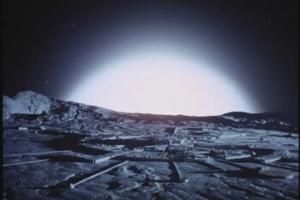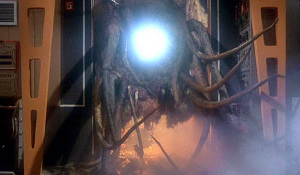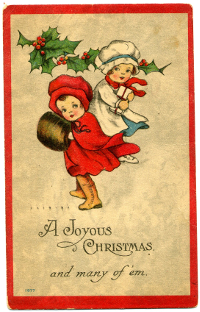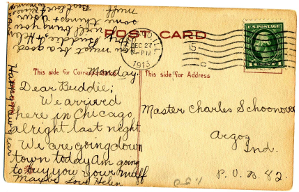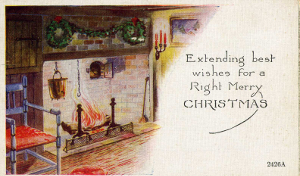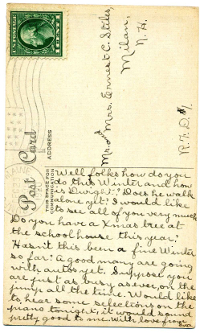Some of My Best Friends Are Science
Honest!
Wednesday, February 5, 2020 8:40 pm
You might suppose, after reading a fair number of my posts, that I have a hostility for science and scientists.
I don't.
However, science these days usually manifests as scientism, the idea that knowledge begins and ends in the laboratory. Moreover, scientists think that their atheism is proved by their science, when, of course, atheism is a philosophical choice. By and large I am just annoyed by the metaphysical sloppiness of modern scientists, not to mention their arrogant dismissal of God and of religion.
I am especially annoyed by convoluted absurdities — such as the multiverse — that scientists cling to because they cannot entertain theism.
Anyhow, science is good. Science is great! No, I'm not some twittering dolt who Fuckin s Science. I genuinely love science. Mankind should study every bit of Creation — and learn its every fact. The thing is, those are not the only facts; and it is Creation itself that alerts us to the facts outside it.
I don't.
However, science these days usually manifests as scientism, the idea that knowledge begins and ends in the laboratory. Moreover, scientists think that their atheism is proved by their science, when, of course, atheism is a philosophical choice. By and large I am just annoyed by the metaphysical sloppiness of modern scientists, not to mention their arrogant dismissal of God and of religion.
I am especially annoyed by convoluted absurdities — such as the multiverse — that scientists cling to because they cannot entertain theism.
Anyhow, science is good. Science is great! No, I'm not some twittering dolt who Fuckin s Science. I genuinely love science. Mankind should study every bit of Creation — and learn its every fact. The thing is, those are not the only facts; and it is Creation itself that alerts us to the facts outside it.
The Multiverse Is an Evasion
Fine Tuning Without a Tuner
Tuesday, February 4, 2020 10:22 pm
You’ve all heard the silly formulation. Given infinite monkeys on infinite typewriters in infinite time, one of those monkeys will tap out the complete works of Shakespeare. You see, improbable as that may be, the probability is not zero. Thus it must happen!
But is a probability that low — even assuming it is accurate — really other than zero? The universe is quantized. It is not a continuum. There are not infinite values of anything small. There is always a gap above zero, a very real sense in which some numbers are not allowed. Not everything can happen. Ridiculously tiny probabilities are meaningless. They vanish into that gap.
But is a probability that low — even assuming it is accurate — really other than zero? The universe is quantized. It is not a continuum. There are not infinite values of anything small. There is always a gap above zero, a very real sense in which some numbers are not allowed. Not everything can happen. Ridiculously tiny probabilities are meaningless. They vanish into that gap.
The Clash of Virtues
Orienting Fiction Away From Darkness
Saturday, February 1, 2020 1:41 pm
Recently I blogged about my recipe for writing pulp action. Soon after, I came across some excellent writing advice from an author. It applies to any fiction, not only pulp; but it supports the broader agenda of avoiding nihilism.
The author says to introduce a character in a way that showcases a virtue rather than a fault. As he points out, there is a (bad) idea regnant that we are defined by our faults, and that being good is unrealistic or unrelatable. (I made a similar point years ago, though not in the context of writing.)
He further says, "Internal conflicts between good and bad qualities are boring." I'd not say boring; perhaps too commonplace. But then he says:
Most importantly, the reader is given characters that elicit admiration, not pity or condescension.
Anyhow — something to keep in mind.
The author says to introduce a character in a way that showcases a virtue rather than a fault. As he points out, there is a (bad) idea regnant that we are defined by our faults, and that being good is unrealistic or unrelatable. (I made a similar point years ago, though not in the context of writing.)
He further says, "Internal conflicts between good and bad qualities are boring." I'd not say boring; perhaps too commonplace. But then he says:
Show me a conflict between duty and compassion, or courage and wisdom, or love and justice.That imperative is illuminating. Fiction requires conflict; but conflict does not require evil. Depicting a clash of virtues denies vices an equal standing, and it's a nice way to show that virtue is vigorous and not — as the modern world would tell you — merely the absence of vice.
Most importantly, the reader is given characters that elicit admiration, not pity or condescension.
Anyhow — something to keep in mind.
My Pulp-Action Recipe
Writing Action & Adventure
Saturday, January 18, 2020 3:11 pm
This past week I finished writing An Uncommon Day at the Lake, a Hamlin Becker tale that I hope to sell to StoryHack.
StoryHack is, as it calls itself, a magazine of "Action & Adventure." This means no tales of navel-gazing and nihilism and ponderous puffery. It also means tales generally free of current-year correctness, a thing that hates fun and other natural human ways of being and is hardly interested in action and adventure.
StoryHack is, as it calls itself, a magazine of "Action & Adventure." This means no tales of navel-gazing and nihilism and ponderous puffery. It also means tales generally free of current-year correctness, a thing that hates fun and other natural human ways of being and is hardly interested in action and adventure.
A Happy Year, Indeed
News of Story Submissions
Sunday, December 1, 2019 5:10 pm
Cirsova Magazine has accepted my outstanding story The Fourth Gift, which will appear in the 2020 Summer Special. I really wanted to get into Cirsova, just as I wanted to get into StoryHack and Stupefying Stories. Hurrah!
With this, I have sold every story I have written since I retired from my day job three years ago. Yes, that is only seven stories; but none of them will die in my drawer, unread. And considering that I sold zero stories in all the years before 2017, those seven will do nicely. (To be sure I had some success with juvenile books in the 1990s; but only now are my grown-up stories succeeding.)
Now to finish An Uncommon Day at the Lake (the 3rd Hamlin Becker tale). And after that? I have some ideas...
With this, I have sold every story I have written since I retired from my day job three years ago. Yes, that is only seven stories; but none of them will die in my drawer, unread. And considering that I sold zero stories in all the years before 2017, those seven will do nicely. (To be sure I had some success with juvenile books in the 1990s; but only now are my grown-up stories succeeding.)
Now to finish An Uncommon Day at the Lake (the 3rd Hamlin Becker tale). And after that? I have some ideas...
Nightmares and Loneliness
The first part of this was posted on September 13th. I decided to combine the two parts into a single post. I also changed the title.
My father and I didn't do a lot together. In part he was simply seldom around. He was in the restaurant business — as cook, as manager, as owner — and the hours were atrocious. He was also not given to fraternizing with his children.
In fairness to him, I was a difficult and solitary nerd.
The True Nature of Space: 1999
Sunday, December 1, 2019 1:25 pm
Part I
In fairness to him, I was a difficult and solitary nerd.
Christmas Greetings from People I Don't Know
Antique Postcards, a Century On
Saturday, November 30, 2019 5:56 pm
As I mentioned in a post in 2017, for Christmas I decorate my mantle with antique postcards. I bought these from boxes in antique shops. Since it is now properly after Thanksgiving, I have now placed my Christmas decorations; and for fun I present to you a couple of those postcards.
© 2004-26 David Skinner · All rights reserved
